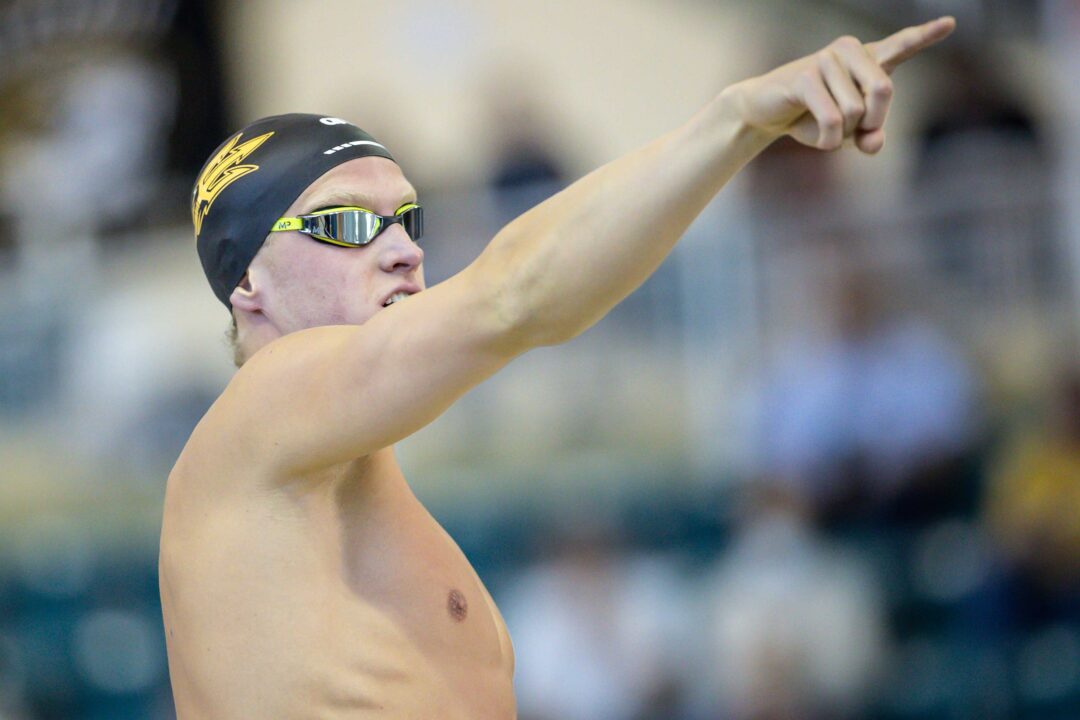Former Arizona State swimmer Grant House‘s lawyers filed a motion for summary judgement this week that could give the plaintiffs an early victory in the House v. NCAA case with more than a billion dollars in damages at stake.
If U.S. District Judge Claudia Wilken grants summary judgement — a high bar to clear, since she must conclude that no reasonable jury could have decided differently — the only thing left to be decided at the jury trial next January would be the amount of damages. The NCAA and Power Five conferences have until May 17 to file their own motion for summary judgement to request Wilken rule in their favor without a trial.
House’s attorneys pointed to NCAA president Charlie Baker‘s recent proposal paving the way for college athletes to receive direct payments from their schools as proof that the organization’s remaining restrictions on name, image, and likeness (NIL) earnings violate federal antitrust law. For decades, the NCAA leaned on the legal argument that amateurism is necessary to protect consumer demand and competitive balance.
“This pronouncement by President Baker is an admission by the NCAA that, by itself, establishes the existence of less restrictive alternatives,” the athletes’ lawyers wrote in their motion.
Attorneys for the NCAA and the Power Five Conference have said previously that the class action lawsuit is seeking more than $4 million in damages from lost NIL opportunities, including a cut of television contracts. The plaintiffs are also aiming to reform NCAA rules to get athletes a seat at the table in negotiations for Power Five television contracts.
The brief quoted former Michigan head football coach Jim Harbaugh, who said that coaches should stop “robbing” broadcast revenues from college athletes. The plaintiffs also referenced Supreme Court Justice Neil Gorsuch‘s claim in NCAA v. Alston that the NCAA and Power Five conferences’ “absolute… monopsony power” over their labor market is indisputable.
In January, the Ninth Circuit rejected an appeal from the NCAA pleading that class action certification in House v. NCAA would the “death knell.” House’s attorneys questioned why the NCAA would struggle to pay damages with more than $7 billion in annual revenue attributed to Power Five schools alone annually.
House first filed the lawsuit back in 2020, more than a year before the NCAA lifted its restrictions on college athletes’ ability to profit off their publicity rights. His case was granted class-action status in November on behalf of nearly 15,000 Power Five athletes from 2016 to 2021.
House v. NCAA isn’t the only threat that Baker is facing right now in his new role as NCAA president. In front of Congress in January, he warned that if the NCAA loses the Johnson case — seeking minimum wage for college athletes — two-third of athletic teams could be eliminated (though the plaintiffs dispute that point). The National Labor Relations Board is also weighing whether to deem college athletes employees, which Baker is looking to get ahead of by asking Congress for antitrust exemptions.

can this guy stop griefing